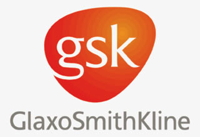
Maryland Industrial Partnerships (MIPS) Funding for Technology Product Development
MIPS provides funding, matched by participating companies, for university research projects that help companies develop new technology products.
Benefits to Maryland Companies
- Cost-effective research with world-class university faculty
- Access to university students, state-of-the-art facilities, laboratories and equipment
- Non-dilutive, non-debt funding for research
- Opportunity to work directly with talented students—potential future hires
- Rapid proposal evaluations—MIPS notifies award winners within 60 days of the proposal deadline
Benefits to Maryland Faculty
- Research translates directly to new product development
- Potential for published papers and improved university facilities
- Students gain valuable experience working on commercial technologies
Visit www.mips.umd.edu or call 301.405.3891301.405.3891 for details.
APPLICATIONS ARE DUE BY OCTOBER 15, 2014!











